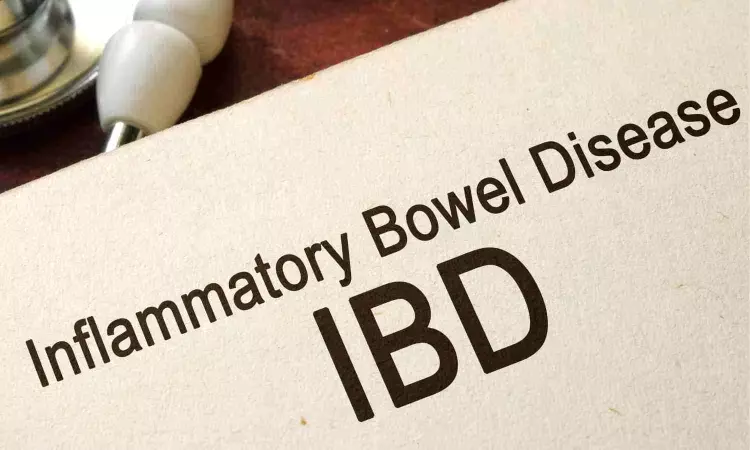- Home
- Medical news & Guidelines
- Anesthesiology
- Cardiology and CTVS
- Critical Care
- Dentistry
- Dermatology
- Diabetes and Endocrinology
- ENT
- Gastroenterology
- Medicine
- Nephrology
- Neurology
- Obstretics-Gynaecology
- Oncology
- Ophthalmology
- Orthopaedics
- Pediatrics-Neonatology
- Psychiatry
- Pulmonology
- Radiology
- Surgery
- Urology
- Laboratory Medicine
- Diet
- Nursing
- Paramedical
- Physiotherapy
- Health news
- Fact Check
- Bone Health Fact Check
- Brain Health Fact Check
- Cancer Related Fact Check
- Child Care Fact Check
- Dental and oral health fact check
- Diabetes and metabolic health fact check
- Diet and Nutrition Fact Check
- Eye and ENT Care Fact Check
- Fitness fact check
- Gut health fact check
- Heart health fact check
- Kidney health fact check
- Medical education fact check
- Men's health fact check
- Respiratory fact check
- Skin and hair care fact check
- Vaccine and Immunization fact check
- Women's health fact check
- AYUSH
- State News
- Andaman and Nicobar Islands
- Andhra Pradesh
- Arunachal Pradesh
- Assam
- Bihar
- Chandigarh
- Chattisgarh
- Dadra and Nagar Haveli
- Daman and Diu
- Delhi
- Goa
- Gujarat
- Haryana
- Himachal Pradesh
- Jammu & Kashmir
- Jharkhand
- Karnataka
- Kerala
- Ladakh
- Lakshadweep
- Madhya Pradesh
- Maharashtra
- Manipur
- Meghalaya
- Mizoram
- Nagaland
- Odisha
- Puducherry
- Punjab
- Rajasthan
- Sikkim
- Tamil Nadu
- Telangana
- Tripura
- Uttar Pradesh
- Uttrakhand
- West Bengal
- Medical Education
- Industry
Vitamin D Deficiency Increases Bowel Resection Risk in Inflammatory Bowel Disease, suggests research

Inflammatory bowel disease (IBD) is a chronic inflammatory condition of the gastrointestinal tract, affecting millions worldwide. Bowel resection is a common surgical intervention in IBD patients, with significant implications for quality of life. While vitamin D has been studied for its anti-inflammatory and immune-modulating properties, its association with bowel resection risk in IBD remains unclear. A recent study was published in the International Journal Of Surgery by Dan Lintao and colleagues.
This longitudinal cohort study analyzed data from 5474 individuals with IBD in the UK Biobank. Serum 25-hydroxyvitamin D [25(OH)D] levels were measured, and bowel resection events were recorded via national inpatient data. Cox proportional hazard regression and restricted cubic spline analysis were used to assess the association between serum 25(OH)D levels and bowel resection risk.
The key findings of the study were:
Over a mean follow-up of 13.1 years, 513 incident bowel resection cases were documented.
Participants with non-deficient vitamin D levels had a significantly reduced risk of bowel resection in IBD (HR 0.72, 95% CI 0.59-0.87, P=0.001), Crohn’s disease (CD, HR 0.74, 95% CI 0.56-0.98, P=0.038), and ulcerative colitis (UC, HR 0.73, 95% CI 0.57-0.95, P=0.020) compared to those with vitamin D deficiency.
Comparison of extreme quintiles of 25(OH)D level revealed a 34% reduced risk of bowel resection in IBD (95% CI 11%-51%, P=0.007) and a 46% reduced risk in UC (95% CI 19%-64%, P=0.003), with no significant association in CD.
Linear dose-response associations were observed, indicating a consistent reduction in bowel resection risk with increasing serum 25(OH)D levels (all P-nonlinearity>0.05).
This study highlights the importance of adequate vitamin D levels in reducing bowel resection risk in IBD patients. While the association was significant in UC, further research is needed to elucidate the relationship in CD. Vitamin D deficiency emerges as a risk factor for bowel resection, suggesting its potential as a predictive metric for surgical events in IBD.
The study concluded that elevated serum levels of 25(OH)D are independently associated with a reduced risk of bowel resection in IBD, particularly in UC. Addressing vitamin D deficiency may offer a preventive strategy against surgical interventions in IBD patients.
Reference:
Dr Riya Dave has completed dentistry from Gujarat University in 2022. She is a dentist and accomplished medical and scientific writer known for her commitment to bridging the gap between clinical expertise and accessible healthcare information. She has been actively involved in writing blogs related to health and wellness.
Dr Kamal Kant Kohli-MBBS, DTCD- a chest specialist with more than 30 years of practice and a flair for writing clinical articles, Dr Kamal Kant Kohli joined Medical Dialogues as a Chief Editor of Medical News. Besides writing articles, as an editor, he proofreads and verifies all the medical content published on Medical Dialogues including those coming from journals, studies,medical conferences,guidelines etc. Email: drkohli@medicaldialogues.in. Contact no. 011-43720751


